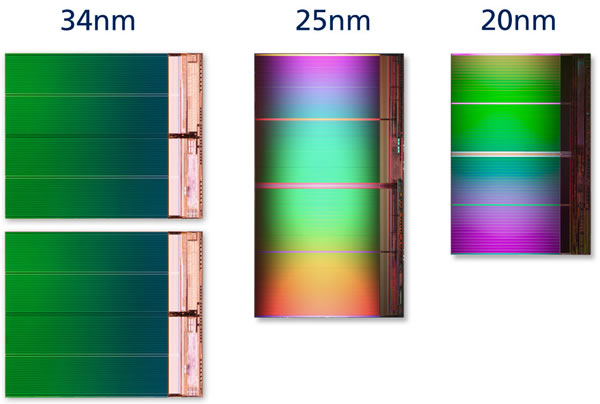It feels like just yesterday that Intel and Micron unveiled the industry's first 25nm NAND flash memory chip, but it's actually been more than a year. Needless to say, the companies have been toiling away at the next advancement and they've just announced the fruits of their labor: a 20nm 8GB (64Gb) MLC NAND Flash memory chip. Moving from 25nm to 20nm will allow device-makers to squeeze more storage in less space, an increasingly relevant prospect for the booming smartphone and tablet market.
The new 20nm 8GB part is manufactured by Intel and Micron's joint semiconductor company IM Flash Technologies. It measures 118mm2 and depending on the package type, it's 30 to 40% more compact than the companies' existing 25nm 8GB chip. Furthermore, the denser lithography allows IMFT to produce "50% more gigabyte capacity" from their factories over the current technology. All the while, the 20nm part supposedly maintains a similar performance and endurance as its 25nm predecessor.

Intel and Micron are gearing up for operations, with mass production of the new 8GB chip set to commence sometime in the latter half of this year. During the same period, the companies also expect to introduce samples of a 16GB part that will allow for 128GB solid-state storage solutions in a package smaller than a US postage stamp. IMFT's 25nm flash has only recently appeared with Intel's 320 Series consumer SSDs, so we wouldn't expect to see drives with the 20nm NAND chips until sometime next year.
https://www.techspot.com/news/43307-intel-micron-announce-20nm-8gb-nand-flash-chips.html